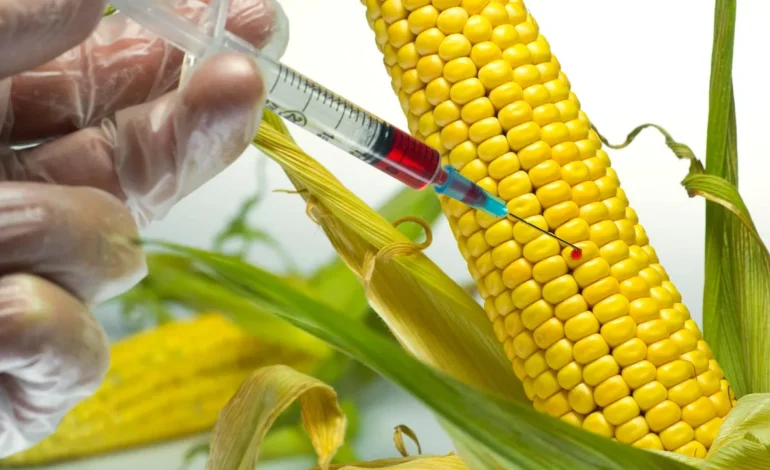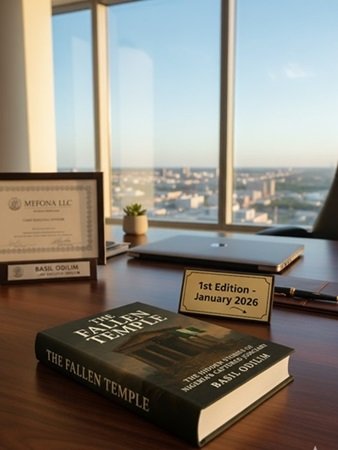GMO Food: Push It Down Their Bloody Throats!

Isn’t it in justification of GMO as America’s newest weapon of imperialism that led Catherine Bertini, a protégé of the Rockefeller and formerly US Assistant Secretary of Agriculture to arrogantly say, “Food is power! We use it to change behaviour. Some may call that bribery. We do not apologise”?
As a senior official of the State Department and protege of the Rockefellers, George Kennan, in a 1948 memo, reminded his colleagues, “…we will have to dispense with all sentimentality and day-dreaming; and our attention will have to be concentrated everywhere on our immediate national objectives. We need not deceive ourselves that we can afford today the luxury of altruism and world-benefaction.”
The realisation of the talked about American Century was eventually handed to Henry Kissinger, a life-long practitioner of geopolitics, whose closeness to the Rockefellers made him the symbol of the American raw realpolitik. Serving both as Secretary of State and National Security Adviser in 1974, he’s alleged to have penned the controversial plan for America to use oil and food to dominate the world, which in his secret memo titled “Implications of Worldwide Population Growth for US Security and Overseas Interests”, declared that “Control oil and you control the nations; control food and you control the people.”
In other words, for Kissinger, besides black gold, the US needed to fully control the daily provision of bread in such a way that it could control the world’s population, particularly population growth in developing countries, since otherwise developing countries’ population growth and economic development would pose a threat to the US access to their strategic raw materials needed for keeping the US growing.
But to control global food security in a way that controls the world’s population, the Rockefellers sought to control biology, the very science of life itself, and “its applications in plant and agriculture.” It soon became clear that to bring the world’s very basis of human survival under its sway would require the family to dominate the research and development of genetically modified organisms (GMO). That’s why the story of GMO is synonymous with the story of the rigorous pursuit of American ascendency alongside the Rockefeller Foundation eugenics (increasing the quality of ‘superior’ human species, while reducing the quantity of ‘inferior beings’).
That is why the creation of Rockefeller’s multinational agribusiness, which financed the agricultural “Green Revolution”, even when it expanded the dependency of the agricultural sector of developing countries on Rockefeller controlled petro-chemical fertilisers and petroleum products, was only laying the foundation to what is now the Rockefeller-led genetically modified crops, seeds, and livestock. Like the earlier Rockefeller oil monopoly built on vertical integration with vengeance, the same vertical integration has since driven the Rockefeller agribusiness with only four giant chemical multinational companies — Monsanto, DuPont, Dow, and Syngenta — the global players controlling patents on the very basic food products that the world depends on for its daily nutrition.
But what makes gene manipulation so horrifying is the fact that despite the dangers it poses, and the serious warnings from respected research scientists against how recombinant DNA (rDNA) research could result in viruses and toxins unintentionally created in the process of introducing new genes into a plant’s cell, the US government and the Rockefeller Foundation are yet to recognise the urgency to fully subject GMO to rigorous regulation, let alone mandating the labelling of GMO food.
Yes, the green revolution was horrendous for having converted most family farmlands into industrial agricultural production, for emptying the countryside of its valuable natural and human resources, and for devastating local agro-biodiversity thanks to excessive pesticides. But as horrendous as the green revolution could be described, it was only there setting the stage for the most vicious revolution — genetic engineering of plants and animals entirely from new genes and combinations of genes made in the laboratory by bypassing sexual reproduction itself. Jumping the natural species barriers not only makes the process not only dangerously imprecise, uncontrollable, and unreliable as it easily damages and scrambles the host genome, but also makes the process entirely unpredictable.
But what makes gene manipulation so horrifying is the fact that despite the dangers it poses, and the serious warnings from respected research scientists against how recombinant DNA (rDNA) research could result in viruses and toxins unintentionally created in the process of introducing new genes into a plant’s cell, the US government and the Rockefeller Foundation are yet to recognise the urgency to fully subject GMO to rigorous regulation, let alone mandating the labelling of GMO food.
What makes the whole thing excessively dangerous is that with the absence of labeling, GMO plants and animals seem to resemble conventional ones, and in effort to keep it that way, the US government and the Rockefeller Foundation can’t stop insisting that GMO plants and animals are “substantially equivalent” to the ordinary plants and animals of the same variety such as ordinary corn, soybeans, rice, cotton, beef, etc.
How could shoppers going to local supermarket be assured, for example, that the beef or pork they’re buying is not GMO food? The total disregard to the fact that genetically engineered plant and animal breeding differ from traditional methods in very important aspects, could be unbelievable. It is one thing for a government to support long-term laboratory research through science grants. It’s quite another to force the opening up of developing countries’ markets to the flooding of untested, potentially cancer-causing and (racially targeted reproductive-killer foods such as spermicidal corn).
First, genes from one organism could be extracted and recombined with those of another using rDNA technology without either organism having to be of the same species. Second, removing the requirement for species reproductive compatibility, new genetic combinations could be produced in a highly accelerated way. That genetic engineering’s introduction of a foreign organism into a plant in an imprecise and unpredictable process could be real, but to be ignored could show an unconcerned government. But how could such a well informed government unbelievably insist so, ignoring the qualitative internal alterations that accompany genetically engineered plant? What could be the reason for not requiring biochemical or toxological tests, and for not requiring regulatory measures in genetically engineered varieties?
How can Washington justify the argument that genetically modified products should not be labeled because they are “substantially equivalent”, and then contradict the earlier argument that allowed US agribusiness to claim exclusive patent rights on their genetically modified organisms or seeds, on the ground that introducing a foreign DNA into the genome of a plant uniquely altered it?
But what could have been the reason for allowing giant agribusinesses to have their way, notwithstanding the overwhelming evidence of their products being hazardous to public health? In other words, what could have caused the US government and the Rockefeller Foundation to be ignoring the numerous warnings from leading scientists about the irreparable damage of GMO food to human health, if not that its reproductive risks could be targeted on Asian and African population control, which some leading scientists increasingly argue as an imminent racial genocide? Or could it be as some now argue that having the powerful Rockefeller Foundation behind it makes it difficult for the US government to oppose the dangerous GMO-altered food crops and their proliferation worldwide?
It remains difficult to understand this Washington policy contradiction, especially the argument that genetically engineered foods are “substantially equivalent” to their traditional varieties, and for that reason they should not be regulated beyond their conventional varieties; and then the same Washington turning around to argue that the same “substantially equivalent” plants and crops should be granted patent rights for being “substantially transformed.”
How can Washington justify the argument that genetically modified products should not be labeled because they are “substantially equivalent”, and then contradict the earlier argument that allowed US agribusiness to claim exclusive patent rights on their genetically modified organisms or seeds, on the ground that introducing a foreign DNA into the genome of a plant uniquely altered it?
On what moral grounds can the Rockefeller-controlled agribusiness claim patent rights, forgetting that it’s the same Rockefeller Foundation that claims that the pursuit of GMO revolution is simply to feed the hungry world? In other words, if the US could argue against regulating and labeling genetically engineered food for the reason that they are not substantially different, what are justifications for demanding WTO to act as the policeman, enforcing Trade-Related Aspects of Intellectual Property Rights (TRIPS)?
Wouldn’t Adesina use his presidency of the African Development Bank to champion GMO crops across Africa, including making the acceptance of GMOs a condition for accessing AfDB loans?
Little wonder, in their desperation to force their GMO seeds down the throats of developing countries around the world, besides persuasion, bribery, coercion, and illegal smuggling into countries, the deployment of WTO, the State Department, the CIA, USAID as well as the World Bank and IMF has been there for the Rockefeller-led gene multinationals to go around intimidating governments who either oppose GMO foods, plants, seeds, and livestock or refuse to allow US multinational gene companies to impose some draconian patent rights and royalties. Isn’t it in justification of GMO as America’s newest weapon of imperialism that led Catherine Bertini, a protégé of the Rockefeller and formerly US Assistant Secretary of Agriculture to arrogantly say, “Food is power! We use it to change behaviour. Some may call that bribery. We do not apologise”?
Speaking in May 2013 at the 53rd Annual General Meeting of the Nigerian Association of Chambers of Commerce, Industry, Mine and Agriculture (NACCIMA) in Kano, the then minister of agriculture, Mr. Akinwunmi Adesina said, “… Syngenta, Monsanto Company and DuPont Company have indicated interest in investing in Nigeria. In fact, in June 2013, Syngenta plans to set up an office in the country.”
Was Mr. Adesina speaking out of ignorance of what these companies have historically represented, or as a co-conspirator? Was he not aware what the presence of these GMO agribusiness giants in Nigeria would lead to, as their presence in developing countries like Brazil, Argentine, Indonesia, Poland, and Mexico have been documented to have led to the horrific invasion of the agricultural economies of these countries, which with their wholesale consolidation, easily transferred these countries’ food production, from the hands of millions of independent family farmers to the agribusiness giants, with local farmers becoming feudal serfs working for the GMO multinational agribusiness?
What about telling his audience the story of Monsanto’s GMO “Roundup Ready” soybeans, which while temporarily increasing the GMO soybeans’ yields, tend to make it impossible for conventional soybeans or any other crop to be grown again in the soil since the insertion of Agrobacterium sp strain CP4 into the GMO soybean’s genome coupled with the spraying of non-selective herbicide with the presence of glyphosate has, in locking up the soil for Monsanto Roundup Ready soybeans, also permanently sterilised the soil? Wouldn’t Adesina use his presidency of the African Development Bank to champion GMO crops across Africa, including making the acceptance of GMOs a condition for accessing AfDB loans?
Odilim Enwegbara, a development expert and consultant, writes from Abuja.








